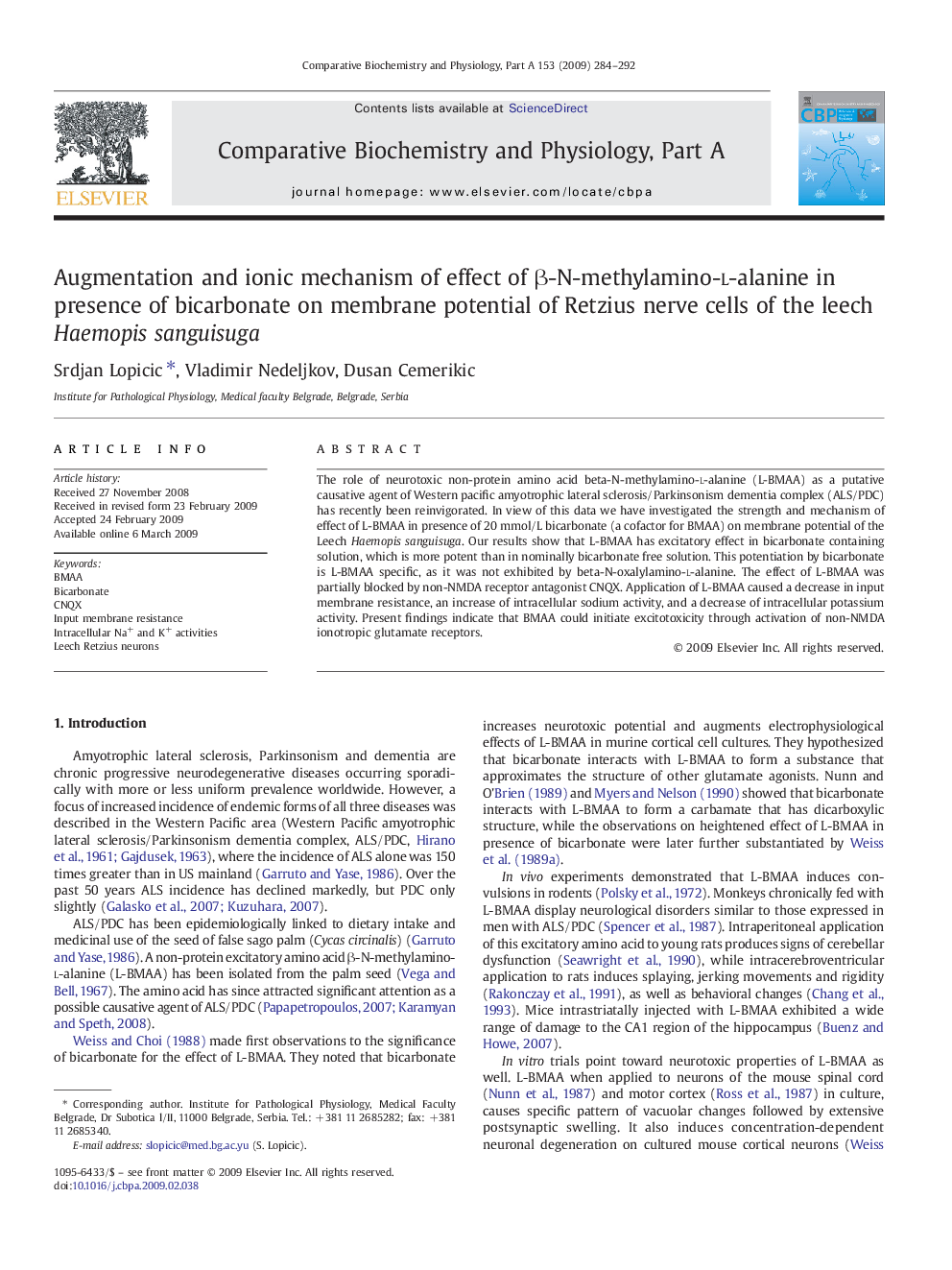| Article ID | Journal | Published Year | Pages | File Type |
|---|---|---|---|---|
| 1974586 | Comparative Biochemistry and Physiology Part A: Molecular & Integrative Physiology | 2009 | 9 Pages |
The role of neurotoxic non-protein amino acid beta-N-methylamino-l-alanine (L-BMAA) as a putative causative agent of Western pacific amyotrophic lateral sclerosis/Parkinsonism dementia complex (ALS/PDC) has recently been reinvigorated. In view of this data we have investigated the strength and mechanism of effect of L-BMAA in presence of 20 mmol/L bicarbonate (a cofactor for BMAA) on membrane potential of the Leech Haemopis sanguisuga. Our results show that L-BMAA has excitatory effect in bicarbonate containing solution, which is more potent than in nominally bicarbonate free solution. This potentiation by bicarbonate is L-BMAA specific, as it was not exhibited by beta-N-oxalylamino-l-alanine. The effect of L-BMAA was partially blocked by non-NMDA receptor antagonist CNQX. Application of L-BMAA caused a decrease in input membrane resistance, an increase of intracellular sodium activity, and a decrease of intracellular potassium activity. Present findings indicate that BMAA could initiate excitotoxicity through activation of non-NMDA ionotropic glutamate receptors.
